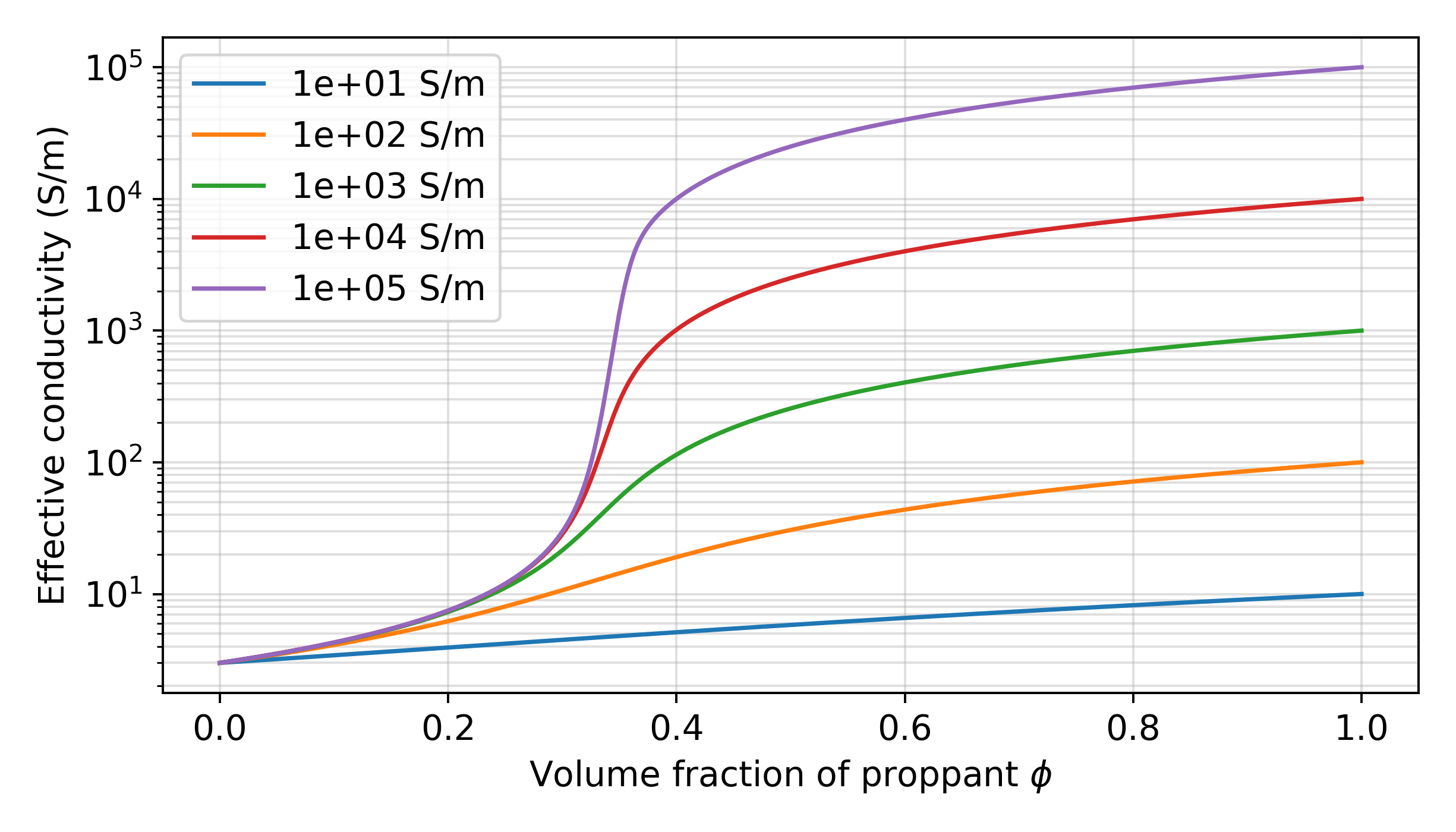Note
Go to the end to download the full example code.
Effective Medium Theory Mapping#
This example uses Self Consistent Effective Medium Theory to estimate the
electrical conductivity of a mixture of two phases of materials. Given
the electrical conductivity of each of the phases (\(\sigma_0\),
\(\sigma_1\)), the SimPEG.maps.SelfConsistentEffectiveMedium
map takes the concentration of phase-1 (\(\phi_1\)) and maps this to an
electrical conductivity.
This mapping is used in chapter 2 of:
Heagy, Lindsey J.(2018, in prep) Electromagnetic methods for imaging subsurface injections. University of British Columbia
- author:
Conductivities#
Here we consider a mixture composed of fluid (3 S/m) and conductive particles which we will vary the conductivity of.
sigma_fluid = 3
sigma1 = np.logspace(1, 5, 5) # look at a range of particle conductivities
phi = np.linspace(0.0, 1, 1000) # vary the volume of particles
Construct the Mapping#
We set the conductivity of the phase-0 material to the conductivity of the fluid. The mapping will then take a concentration (by volume), of phase-1 material and compute the effective conductivity
scemt = maps.SelfConsistentEffectiveMedium(sigma0=sigma_fluid, sigma1=1)
Loop over a range of particle conductivities#
We loop over the values defined as sigma1 and compute the effective conductivity of the mixture for each concentration in the phi vector
/home/ssoler/simpeg/SimPEG/maps.py:1844: UserWarning:
Maximum number of iterations reached
Plot the effective conductivity#
The plot shows the effective conductivity of 5 difference mixtures. In all cases, the conductivity of the fluid, \(\sigma_0\), is 3 S/m. The conductivity of the particles is indicated in the legend
fig, ax = plt.subplots(1, 1, figsize=(7, 4), dpi=350)
ax.semilogy(phi, sige)
ax.grid(which="both", alpha=0.4)
ax.legend(["{:1.0e} S/m".format(s) for s in sigma1])
ax.set_xlabel(r"Volume fraction of proppant $\phi$")
ax.set_ylabel("Effective conductivity (S/m)")
plt.tight_layout()

Total running time of the script: (0 minutes 2.647 seconds)
Estimated memory usage: 9 MB